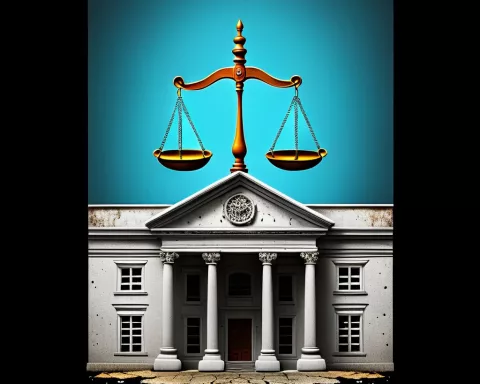In Cape Town, a storm is brewing around Mayor Geordin Hill-Lewis, who stands accused of bullying a local man over a supposed land violation. The conflict began when Hill-Lewis sent an email claiming the man was running an illegal car repair shop at home. This sparked multiple police visits, but no evidence was found, raising eyebrows about the mayor’s use of city resources for personal issues. A heated confrontation further added fuel to the fire, leading to allegations of intimidation. As the city watches closely, important questions about power and ethics in leadership hang in the air.
What is the controversy surrounding Cape Town Mayor Geordin Hill-Lewis?
The controversy involves allegations that Mayor Geordin Hill-Lewis used his position to intimidate a local resident over a suspected land use violation. The mayor’s actions, including repeated police visits, raise ethical concerns about the misuse of authority and city resources in personal disputes.
Neighborhood Dispute Escalates
In the bustling heart of Cape Town, a drama unfolds that has gripped the attention of the city’s residents and officials alike. At the center of this turmoil is Mayor Geordin Hill-Lewis, whose prominent standing in the community is now under scrutiny due to serious allegations from a local resident. This resident accuses Hill-Lewis of leveraging his position to harass and intimidate, turning what began as a neighborhood dispute into a widely watched city affair. The incident raises crucial questions about power dynamics and the responsibilities that come with public office.
The saga began in the serene suburb of Edgemead, where the complainant and Hill-Lewis found themselves embroiled in a clash. The crux of the conflict revolves around an email sent by the mayor, alleging that the resident was operating an illegal car repair shop from his home. This allegation, brought to public attention by Suzette Little of the GOOD Party, highlighted a supposed “strong suspicion” of a “land use violation.” While the email might seem routine, the actions that ensued painted a much darker picture.
Hill-Lewis’s accusations prompted law enforcement to visit the resident’s property on four separate occasions. Despite these repeated checks, officers found no evidence to support the claims. The recurring visits raised eyebrows and questions about the potential misuse of city resources and the mayor’s true intentions. For many, these visits appeared more like a personal vendetta than a legitimate investigation.
The Incident and its Aftermath
The situation escalated further on March 29, 2025, when a heated confrontation took place near the resident’s home. Lieutenant Colonel Malcolm Pojie, a police spokesperson, confirmed that an intimidation case had been registered. During this altercation, both parties exchanged harsh words, with the resident claiming that Hill-Lewis spoke to him in a threatening manner. This incident, currently under investigation, adds another layer of complexity to an already convoluted dispute.
Suzette Little’s comments on the situation strike at the heart of public concern. She underscored the problematic nature of using law enforcement to settle personal scores, especially in the absence of any proven wrongdoing. “Having direct access to Law Enforcement should not be used to settle personal disputes or engage in petty neighborhood conflicts,” she remarked. This sentiment brings to light a critical issue in governance – the ethical use of authority and public resources.
City spokesperson Lyndon Khan offered a defense for Hill-Lewis, asserting that the mayor was simply performing his civic duties by reporting a suspected land use violation. Khan pointed out that any resident has the right to report such infractions. While this defense may hold up legally, it does little to address the ethical concerns raised by Little. The ongoing enforcement process for land use violations continues, but the appropriateness of the mayor’s involvement remains in question.
Ethical Implications and Broader Reflections
The insistence by Suzette Little on a thorough examination of the mayor’s conduct calls for a deeper reflection on the principles of fairness and responsibility. Her pointed remarks serve as a reminder of the high standards expected from those in public office. The GOOD Party’s actions, including their appeal to the Speaker’s Office to ensure that public funds are not used for Hill-Lewis’s defense, further underscore the significant stakes involved.
As the investigation proceeds, the National Prosecuting Authority will eventually rule on the legal aspects of the case. However, this incident transcends immediate legal concerns, serving as a microcosm of broader issues related to power, ethics, and accountability in public service. Hill-Lewis’s actions, whether seen as a duty or an abuse of power, spark an essential dialogue on the limits and proper use of authority.
This episode in Cape Town’s ongoing narrative echoes past political dramas that highlight the delicate balance between public service and personal interest, a timeless theme in governance. The Enlightenment era’s focus on reason and ethics in public life finds a contemporary reflection in this complex story.
Lessons and Future Implications
Furthermore, the situation parallels artistic movements, such as 19th-century Realism, that seek to reveal the truth beneath surface appearances. Just as Realist artists depicted the harsh realities of everyday life, this story strips away the façade of political propriety to expose the underlying tensions and conflicts. It challenges the idyllic notion of suburban tranquility, revealing the intricate and often messy reality beneath.
Cape Town, with its vibrant cultural and political landscape, stands at a pivotal moment. The resolution of this dispute will have implications not just for the individuals involved, but for the future conduct of city governance. The interplay of personal grievances and public duty will continue to shape the narrative, requiring vigilance and integrity from those in positions of power.
This ongoing saga invites reflection on fundamental principles of justice and ethical governance. It serves as a poignant reminder that true leadership is measured not by the exertion of power, but by its judicious and restrained use. As the investigation progresses, the eyes of Cape Town remain intently focused on the unfolding events, eagerly anticipating the next chapter in this compelling tale.
FAQ about the Cape Town Controversy Involving Mayor Geordin Hill-Lewis
What is the controversy surrounding Cape Town Mayor Geordin Hill-Lewis?
The controversy involves allegations that Mayor Geordin Hill-Lewis used his position to intimidate a local resident regarding a suspected land use violation. The mayor’s actions, including multiple police visits, have raised ethical concerns about the misuse of authority and city resources in personal disputes.
What led to the allegations against Mayor Hill-Lewis?
The conflict began when Hill-Lewis sent an email claiming that a local resident was operating an illegal car repair shop from his home. This led to several police visits to the resident’s property, but no evidence was found to support the mayor’s claims.
How did the situation escalate?
The situation intensified on March 29, 2025, when a heated confrontation occurred near the resident’s home, resulting in a case of intimidation being registered. Both parties exchanged harsh words, with claims that Hill-Lewis spoke to the resident in a threatening manner.
What are the ethical implications of this controversy?
The controversy raises critical questions about the appropriate use of authority and public resources in governance. Critics, including Suzette Little of the GOOD Party, have highlighted the problematic nature of using law enforcement to resolve personal disputes, emphasizing the need for public officials to uphold high ethical standards.
What is the response from Mayor Hill-Lewis’s office regarding the allegations?
A city spokesperson, Lyndon Khan, defended Hill-Lewis by stating that he was merely fulfilling his civic duty by reporting a suspected land use violation. However, this defense has not fully addressed the ethical concerns raised by critics regarding the mayor’s involvement in the situation.
What are the broader implications of this incident for Cape Town’s governance?
This incident serves as a microcosm of larger issues related to power, ethics, and accountability in public service. The outcome of the investigation may influence future conduct within city governance, underscoring the importance of integrity and responsible leadership in public office.











